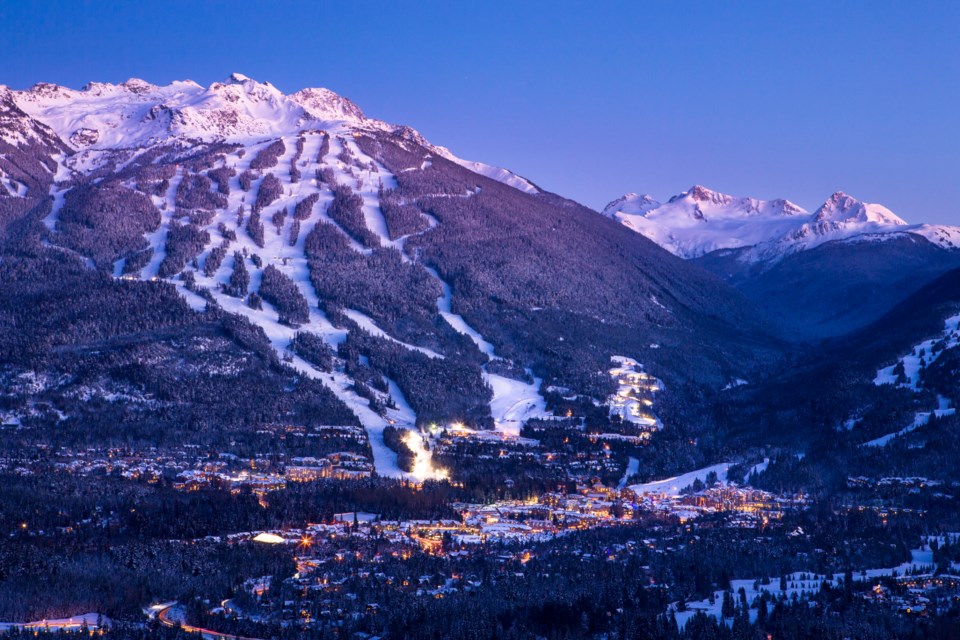For many years, Whistler’s fabled “bed cap” has been held up as a sort of fail-safe—the measure of capacity (vague though it may be) that will keep the resort in check, safe from greedy builders and runaway development in a constrained valley.
Similarly, the local Official Community Plan (OCP)—required for all municipalities in B.C.—has served as a guiding document working within the constraints of said bed cap.
It sets out Whistler’s intentions and restrictions around local development, and states our guiding vision: “A place where our community thrives, nature is protected and guests are inspired.”
Countless hours have been invested in Whistler’s OCP over the last decade and a half, spread across three different municipal councils.
In 2014, the document was notoriously quashed by the Supreme Court of B.C., which ruled the provincial government did not properly consult with local First Nations in the process. That sent local officials back to the drawing board for another round of community consultation.
Following several more surveys and open houses, the updated OCP was adopted at long last in June 2020, nearly a decade after officials set out to renew it.
Now, much of that hard work could be for naught as the provincial government’s Bill 44 comes into play.
Also referred to as the Small-Scale Multi-Unit Housing bylaw—or the delightfully mush-mouthed acronym SSMUH—Bill 44 still seems to carry more questions than answers.
Whistler council officially adopted a bylaw to comply with Bill 44’s legislative requirements in June 2024, and the matter was back at the council table Feb. 25 for some minor amendments and more discussion.
“This is really confusing for a lot of people. Everyone thought that there was a bed cap, and what has happened is that the province has removed that bed cap, and so now we’ve got to put some rules in place,” said Councillor Cathy Jewett, who commended staff for their work on the file—though she wasn’t convinced uptake will happen right away.
“We’ll see how things go. But it’s very expensive to redevelop a single-family home in Whistler so it’s going to take time before I think we really see the numbers,” Jewett said.
In the opinion of Coun. Arthur De Jong, Whistler has already hit the capacity “ceiling” in several areas, whether it be highway congestion, water/sewer infrastructure, the guest experience, or the experience of locals in the community.
“Others with far, far more expertise than I, world-renowned mountain-resort planners, have said that to me: don’t kill the goose. You guys have a very close balance now,” De Jong said, adding Bill 44 feels like it’s throwing Whistler’s OCP “into the trash can.”
Staff’s efforts to squeeze as much employee housing out of the bill as possible are commendable, but “I’m very troubled by Bill 44,” De Jong added.
“It goes against the grain of what I learned in decades of planning. And I don’t think our provincial government has really thought it out.”
It could be argued Whistler, and other resort communities in B.C., should be afforded an exemption to Bill 44—especially in Whistler’s case, given its extensive and ongoing efforts around employee housing through the Whistler Housing Authority.
But no exemptions are coming, leaving Whistler to adapt with the rest of the province. No sense playing the victim, or fretting over our suddenly outdated OCP.
“I think it’s really important to recognize that this bill and the benefits of this bill are going to happen in places like Squamish, and they’re going to happen in North Vancouver, and they’re going to happen all over the province,” said Coun. Jen Ford.
“So this is not happening to Whistler, this is happening for British Columbia, and I think that our staff have done a tremendous job of responding and really being creative … on the heels of Whistler Housing Authority and all of the benefits that we already reap as a community,” she added.
“I know it’s challenging because we want this place to stay as it always was, but that’s just not reality anymore.”
Wherever you stand on development in Whistler—bed-cap protectionism, build, baby, build, or somewhere in between—the rules have changed in 2025.
Whistler’s best laid plans have officially gone awry, through no fault of its own, and now we’re just waiting on the fallout.




